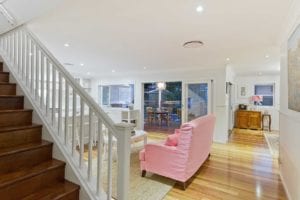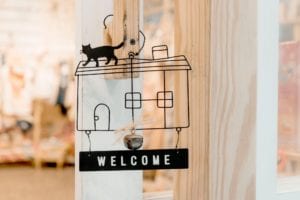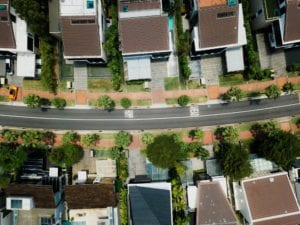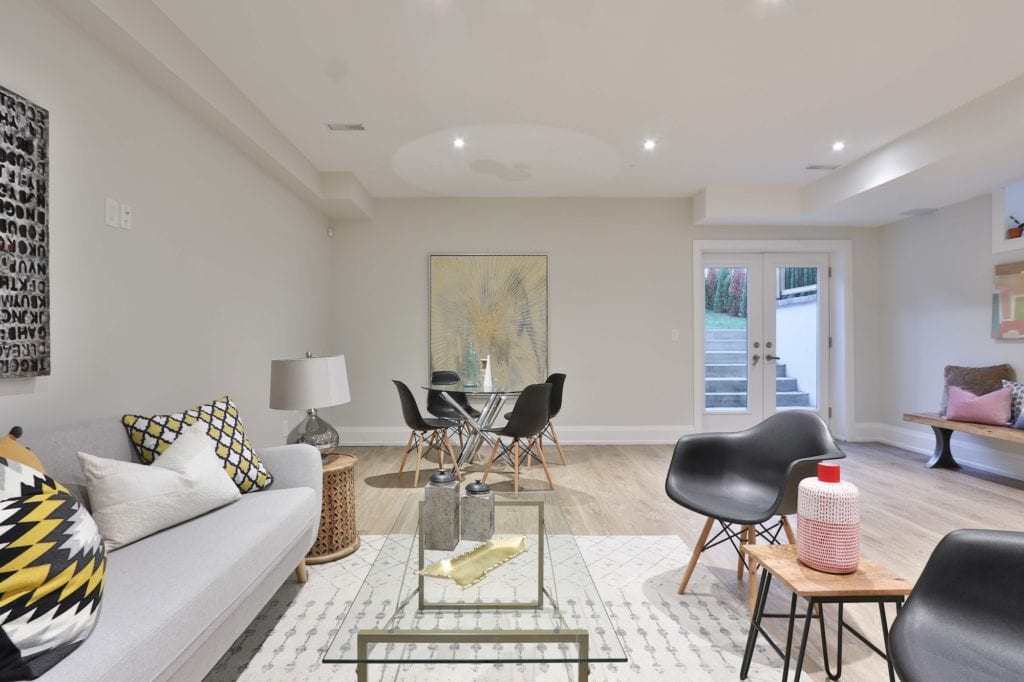Whether you’re looking to earn extra income, ease the cost of homeownership or build up equity for future investment projects, a single family home with a secondary dwelling can be a great opportunity. Secondary dwellings (also known as a second units) are defined by the Ontario Ministry of Municipal Affairs and Housing as “self-contained residential units with a private kitchen, bathroom facilities and sleeping areas within dwellings or within structures ancillary to a dwelling (e.g., above laneway garages)”. Secondary dwellings increase affordable housing in your community and possibly even for your own extended family.
The following are important things to consider when purchasing a single family home with a secondary dwelling for an investment property. The below can help you decide if a single family home with a secondary dwelling is a good investment property option for you based on your capabilities and goals:
Tenants of a single family home with secondary dwelling investment property
 A common approach to investing in a single family home with a secondary dwelling is to live in the home yourself while you’re renting out the secondary dwelling. If this is your approach, consider that you will be living in close proximity to your tenant and possibly sharing common areas such as the yard or parking. Living nearby your tenants has its perks as you have the privilege of keeping a close eye on your biggest investment. Renting your secondary dwelling to extended family can be a great solution to offsetting steep mortgage costs while helping family and keeping aging family members close by. Some investors will even choose to live in the basement apartment for example, while they rent out the main floor. This approach is a way to increase the income from your tenant as you can most likely charge more rent for the main floor than you can for the basement unit, potentially covering more of your mortgage costs.
A common approach to investing in a single family home with a secondary dwelling is to live in the home yourself while you’re renting out the secondary dwelling. If this is your approach, consider that you will be living in close proximity to your tenant and possibly sharing common areas such as the yard or parking. Living nearby your tenants has its perks as you have the privilege of keeping a close eye on your biggest investment. Renting your secondary dwelling to extended family can be a great solution to offsetting steep mortgage costs while helping family and keeping aging family members close by. Some investors will even choose to live in the basement apartment for example, while they rent out the main floor. This approach is a way to increase the income from your tenant as you can most likely charge more rent for the main floor than you can for the basement unit, potentially covering more of your mortgage costs.
Purchasing a single family home with secondary dwelling investment property
 If a secondary dwelling in your single family home is your favoured approach to an investment property, you can either purchase a home with a secondary dwelling already built, or you can do the work yourself. Purchasing a home with a space dedicated to bringing in income can be a lucrative way to make a dream purchase possible and even more affordable. A secondary dwelling, whether built by you or a previous owner, must comply with safety, health and municipal property standards such as Fire Code and Ontario Building Code. It is your responsibility as an owner to be sure your secondary unit meets all the requirements and standards before you rent it out to a tenant. If you are looking at homes with secondary dwellings, be sure to have a realtor you trust who will help you know if the unit is up to code. Renting out a secondary unit not built to code can have serious consequences, and if you are caught, could result in you being required to transform the house back into a single family home at your own expense. If an accident occurs in an illegally built secondary dwelling you own, you could be liable. Whether you are purchasing a home with an existing secondary dwelling or building your own, it is easy and smart to follow the rules and regulations that will keep you safe while owning your income producing property.
If a secondary dwelling in your single family home is your favoured approach to an investment property, you can either purchase a home with a secondary dwelling already built, or you can do the work yourself. Purchasing a home with a space dedicated to bringing in income can be a lucrative way to make a dream purchase possible and even more affordable. A secondary dwelling, whether built by you or a previous owner, must comply with safety, health and municipal property standards such as Fire Code and Ontario Building Code. It is your responsibility as an owner to be sure your secondary unit meets all the requirements and standards before you rent it out to a tenant. If you are looking at homes with secondary dwellings, be sure to have a realtor you trust who will help you know if the unit is up to code. Renting out a secondary unit not built to code can have serious consequences, and if you are caught, could result in you being required to transform the house back into a single family home at your own expense. If an accident occurs in an illegally built secondary dwelling you own, you could be liable. Whether you are purchasing a home with an existing secondary dwelling or building your own, it is easy and smart to follow the rules and regulations that will keep you safe while owning your income producing property.
Management of a single family home with secondary dwelling investment property
 Owning a single family home with a secondary dwelling means that, with the extra money and support towards your mortgage, comes the responsibility of being a landlord. Adjusting your home insurance policy to reflect the rental unit and any changes you’ve made to the value of your home will keep you protected and comfortable. It’s possible your motivation to own a single family home with a secondary dwelling was to rent space to extended family, elderly parents or a live-in caregiver. In this case, a secondary dwelling could make you feel less like a landlord and can have a positive impact on your family. If you choose to live in the home and rent the secondary dwelling to a tenant outside of your family, choosing the most suitable tenant should be a task you put a lot of intention into. Sharing some common spaces like a backyard, driveway or even an indoor space means you will most likely be interacting with your tenant more than you would if you owned a rental property separate from your own home. It will be especially important to choose the right tenant for your secondary dwelling, but it may give you comfort that you’ll be a present landlord, very close to your investment.
Owning a single family home with a secondary dwelling means that, with the extra money and support towards your mortgage, comes the responsibility of being a landlord. Adjusting your home insurance policy to reflect the rental unit and any changes you’ve made to the value of your home will keep you protected and comfortable. It’s possible your motivation to own a single family home with a secondary dwelling was to rent space to extended family, elderly parents or a live-in caregiver. In this case, a secondary dwelling could make you feel less like a landlord and can have a positive impact on your family. If you choose to live in the home and rent the secondary dwelling to a tenant outside of your family, choosing the most suitable tenant should be a task you put a lot of intention into. Sharing some common spaces like a backyard, driveway or even an indoor space means you will most likely be interacting with your tenant more than you would if you owned a rental property separate from your own home. It will be especially important to choose the right tenant for your secondary dwelling, but it may give you comfort that you’ll be a present landlord, very close to your investment.
Locations of single family home with secondary dwelling investment properties
 Depending on the area of the city, Ottawa Ontario zoning by-laws can prevent or permit you to build or own a secondary dwelling for the purpose of renting to a tenant. Most of Ottawa allows for secondary dwellings, but it’s crucial all home owners and investors interested in this option do their due diligence before committing to any construction or making a purchase of a home with an already established secondary unit. If you’re looking to purchase a home with the potential for a secondary dwelling, an experienced realtor will be your lifeline in making the most informed decision not only about the neighbourhood, but about the house itself. Choosing a neighbourhood that permits legal secondary dwellings and is also a neighbourhood that will provide you with great choices of potential tenants should be a primary focus. Your realtor, through experience and knowledge, will be integral in guiding you to the best neighbourhoods for your needs and the best homes that will safely and legally allow you to reap the benefits of a single family home with a secondary dwelling.
Depending on the area of the city, Ottawa Ontario zoning by-laws can prevent or permit you to build or own a secondary dwelling for the purpose of renting to a tenant. Most of Ottawa allows for secondary dwellings, but it’s crucial all home owners and investors interested in this option do their due diligence before committing to any construction or making a purchase of a home with an already established secondary unit. If you’re looking to purchase a home with the potential for a secondary dwelling, an experienced realtor will be your lifeline in making the most informed decision not only about the neighbourhood, but about the house itself. Choosing a neighbourhood that permits legal secondary dwellings and is also a neighbourhood that will provide you with great choices of potential tenants should be a primary focus. Your realtor, through experience and knowledge, will be integral in guiding you to the best neighbourhoods for your needs and the best homes that will safely and legally allow you to reap the benefits of a single family home with a secondary dwelling.
Our team at Sylvain Bourgon Real Estate have experience in all different types of investment properties whether it’s been in personal investments or facilitating successful investment property purchases for our clients.
If you are seeking buying an investment property in the Ottawa area, or have more questions for us, we are happy to provide you with helpful guidance and support. Email us at info@buyandsellottawa.ca or call us at 613-590-3036.
